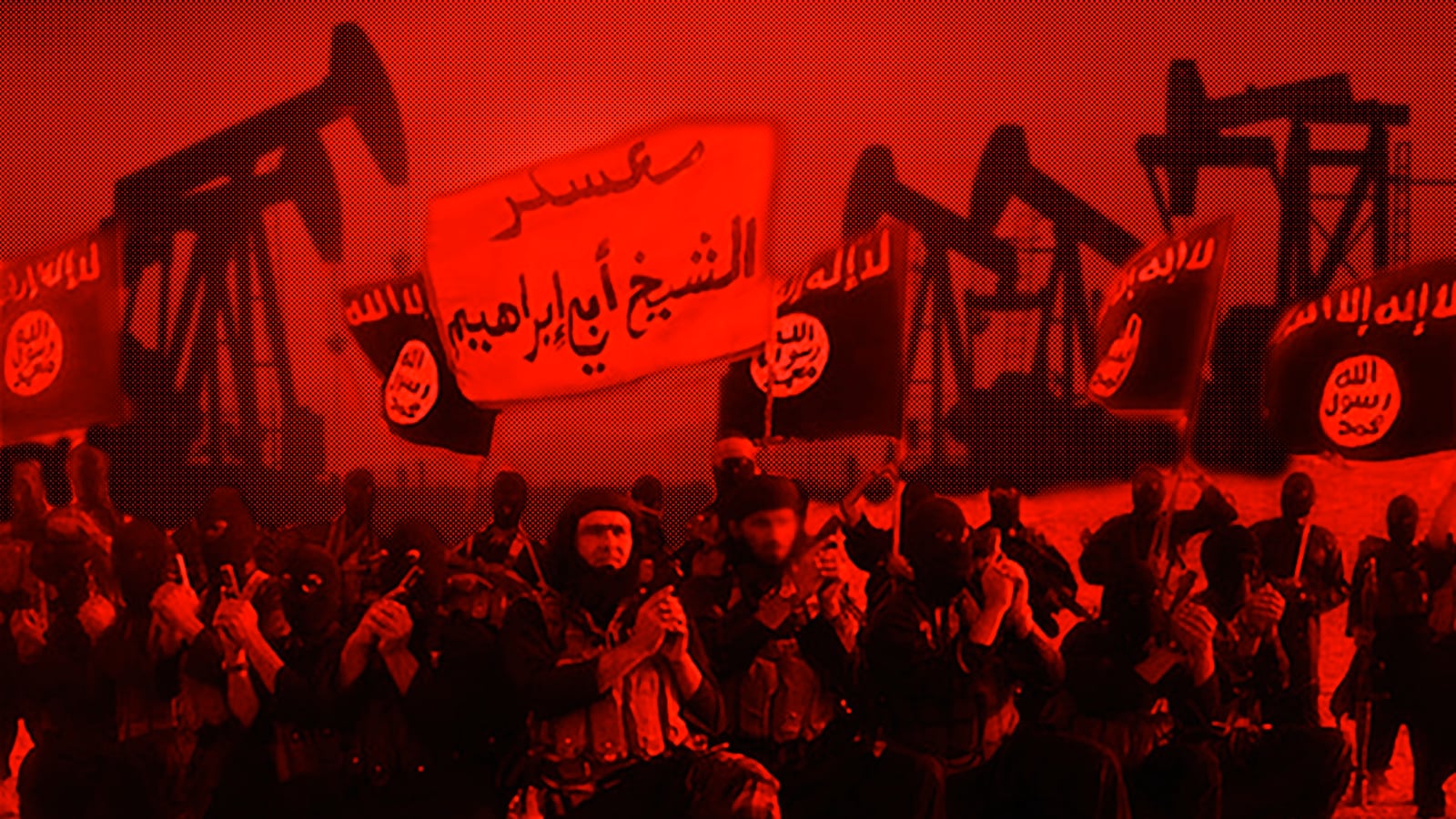No American official was impolite enough to say it publicly at this week’s U.N. General Assembly gathering in New York, but Western frustration is building with Turkey’s reluctance to fulfill a forward-leaning role in the fight against the militants of the ISIS, which calls itself the Islamic State (IS). And with the Security Council agreeing Wednesday on an anti-terror resolution requiring member states to target funding for terror groups, pressure is likely to mount on Ankara.
Turkey’s prime minister, Recep Tayyip Erdoğan, who has come under fire from political opponents for not doing enough to stanch the flow of foreign fighters traveling through Turkey to join the jihadis in Iraq and Syria, told reporters this week in New York that his government would give military or logistical support to U.S.-led airstrikes against insurgents from the Islamic State.
But of equal importance for Washington’s anti-jihadist strategy is for Turkey to help stem money laundering and to stop traders in Turkey buying smuggled oil from the Islamic State.
For years, Ankara has fallen foul of international money-laundering agreements, and despite passing a law last year aimed at preventing the financing of terrorism, Turkey remains on a global list of uncooperative countries. It languishes on what is known as the gray list overseen by the Financial Action Task Force, an inter-governmental body. There are 13 other countries on the list, including Pakistan, Zimbabwe, and Iraq.
The G7-founded body, which is tasked with implementing global standards to counter illicit financing, says Turkey has a weak framework for identifying and freezing terrorist assets. With the U.S. gunning for ISIS and determined to hit its funding, Turkey will be pushed to play its part on hitting the militants in their wallets.
From racking in millions in ransom money for Western hostages to trafficking in rare antiquities looted from museums and archaeological sites in Syria and Iraq, militants of ISIS have turned their jihad into a cash cow and become terror tycoons. Analysts say they are the world’s first self-funding terrorist organization and, unlike al Qaeda, don’t need to go cap-in-hand to wealthy sympathizers in the Gulf—although they don’t say “no” when offered donations.
The U.S.-led coalition turned its attention midweek to one of the most important of the militants’ funding sources: Syria’s oil, which ISIS has been smuggling via neighboring countries to unscrupulous traders, generating an estimated daily revenue of more than $2 million, American officials say.
U.S. and Arab allies struck a dozen small oil refineries and other facilities controlled by ISIS in remote parts of eastern Syria as part of the first phase in a coalition effort to stop the militants from using oil revenue to pay fighters’ salaries and to fund their operations. According to U.S. Central Command, the refineries targeted were producing up to 300 to 500 barrels of oil a day.
But depriving ISIS of its oil revenue is going to be a monumental task. Hitting a dozen rudimentary refineries isn’t going to undercut the group, according to analysts. They say the oil refined by ISIS inside Syria is for the militants’ own immediate transport needs and not for sale to dealers in Turkey, Jordan, and Iran. Revenue is generated from the sale of crude oil, according to Luay al-Khatteeb, an energy expert at the Brookings Doha Center.
To deprive ISIS of its oil revenue would require the U.S. and its allies to bomb nearly a dozen oilfields and hundreds of wells the group has seized in both Syria and Iraq—an operation that would require a huge commitment from the coalition’s air forces and if conducted would cause an environmental hazard. And the government in Baghdad has tied the Pentagon’s hands when it comes to oilfields seized by ISIS in Iraq; it has asked the U.S. not to bomb them, hoping to recapture them intact.
Even more than bombing, a key component in stopping ISIS from profiting from oil will be blocking militants from getting their oil to market by locking up the border with Turkey and Jordan and pressing Kurds to stop dealers in semi-autonomous Kurdistan from trading. The Turks have shown little enthusiasm for halting the trafficking in the past, although in recent weeks they have interdicted some tankers carrying illicit oil.
Oil, though, is just one of the militants’ many revenue streams. The group “now controls a volume of resources and territory unmatched in the history of extremist organizations,” according to Janine Davidson and Emerson Brookings of the Council on Foreign Relations.
Western and Iraqi officials were given a good rundown on where the militants’ wealth comes from when ISIS computers and databases were seized by Iraqi intelligence officers from the Mosul home of an ISIS courier, Abdulrahman al-Bilawi, a few days before jihadists overran the northwestern Iraqi city. The breakdown of the group’s financial resources shocked even senior Iraqi officials and it suggested ISIS was worth more than $800 million even before it added loot pillaged in Mosul to its coffers.
The databases revealed ISIS is receiving cash not only from oil trafficking but also from selling to overseas traders, other Syrian insurgent groups and even the Assad regime. It is also reaping profits from selling industrial machinery from plants and factories pillaged in Aleppo, priceless antiquities stolen from archaeological sites and museums, and cars and weapons captured from the Syrian army.
The picture presented was of a ruthless and entrepreneurial enterprise run by bosses determined to squeeze out every penny of profit. And according to moderate Syrian rebels and locals the image is accurate. They say ISIS leaders on the ground prioritize quickly what is to be looted when they capture new territory, and there is strict management of resources. “IS fighters don’t steal for themselves—they don’t dare to,” says Abdullah, an opposition activist in Tel Rifaat in northern Syria. “It is all overseen.”






